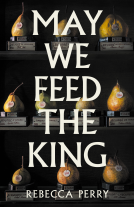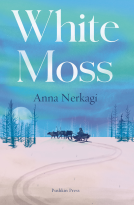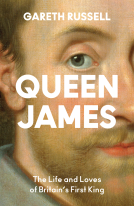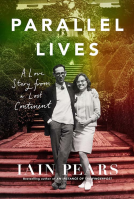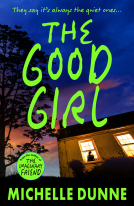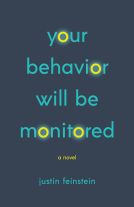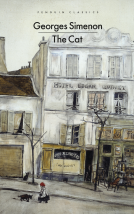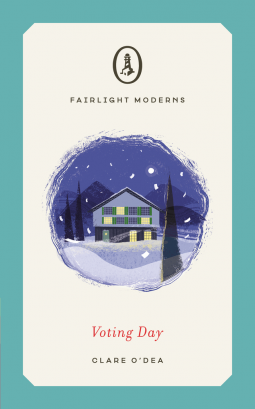
Voting Day
by Clare O’Dea
This title was previously available on NetGalley and is now archived.
Send NetGalley books directly to your Kindle or Kindle app
1
To read on a Kindle or Kindle app, please add kindle@netgalley.com as an approved email address to receive files in your Amazon account. Click here for step-by-step instructions.
2
Also find your Kindle email address within your Amazon account, and enter it here.
Pub Date 1 Apr 2022 | Archive Date 1 Apr 2022
Talking about this book? Use #VotingDay #NetGalley. More hashtag tips!
Description
Advance Praise
‘An uplifting story of hope and solidarity, as well as a vivid, fascinating snapshot of a recent (almost unbelievably recent!) moment in Swiss history. I devoured it in one sitting.’ – Jonathan Coe
‘O’Dea’s storytelling is delicate, tender and insightful. The lives of four Swiss women in the 1950s are opened up to us with care and beauty. A work of fine historical fiction not to be missed.’ – Anne Griffin, author of When All is Said
‘Through deft storytelling skill and narrative imagination, Clare O’Dea’s novella shows how a particular moment in history was experienced through the eyes of real women. Subtly and ingeniously, Voting Day points to the many small and big ways in which womens’ struggle for equality still prevails.’ – Sarah Moore Fitzgerald, author of The Apple Tart of Hope and All The Money In The World
‘Clare O’Dea’s gripping novel is a valuable testament to a moment in history. In a critical yet caring way, the author movingly portrays the fate of four disenfranchised women who are nevertheless striving to take control of their lives.’ – Barbara Traber, Swiss author and translator
Available Editions
| EDITION | Other Format |
| ISBN | 9781914148071 |
| PRICE | $13.95 (USD) |
| PAGES | 144 |
Average rating from 30 members
Featured Reviews
 Mike D, Reviewer
Mike D, Reviewer
When you think of modern Switzerland, visions of prosperity, orderliness and cleanliness come to mind. And yet it bears remembering that however progressive the place seems now, it didn’t give the women a right to vote until 1971…insanely late in the game by any world’s standards. That’s the ugly side of direct democracy – essentially the male votes who had all the power chose to have things a certain way/their way for as long as they were able to get away with it - until the EU pressure became too much.
This short novel highlights that particularly ugly note on Swiss record. Set in 1959 when the vote went 2/3rds against, it features four interconnected perspectives of four very different women as they go about their lives, lives that’ll intersect on that voting day.
An engaging quick read shining the light on the often overlooked downside of the good ole’ days, this book turned out to be a very good character driven read with a message. The balance is just right, the message doesn’t overwhelm the narrative and each individual strand of the narrative works well individually and interwoven into the grand total. Very nicely done. Recommended. Thanks Netgalley.
 Reviewer 902625
Reviewer 902625
Politics is not my favourite thing but I am always very aware of how important it is to vote.
Sadly in some countries the voice of women is still not heard but it might come as a surprise to you that women in Switzerland only gained their right to vote in 1971 when a referendum decided with a two-thirds majority.
But only 12 years earlier in 1959 the same initiative failed with a two-thirds majority against it.
Clare O’Dea was fascinated with this earlier attempt and it sparked her novel Voting Day.
In February 1959 four Swiss women go about their lives as the men head to the halls all over the country to vote.
Vreni is a farmer’s wife, who is off to the city for an important appointment while her husband and sons go to vote.
Margrit, her only daughter has left the farm already and is trying to make a different kind of life in the city but finds herself in a difficult predicament.
Esther is working as a cleaner in a hospital and her only wish is to be reunited with her son.
Beatrice works at the hospital as administrator and wants to make a change.
It’s a different story than I expected but I loved how Clare O’Dea told the story of so many women through these four on a day which sadly ended with a NO vote but as we know women don’t give up easily. I am looking forward to reading more by @clareodea_author and from the Fairlight Modern Series.
Thank you to @netgalley and @fairlightbooks for providing me a free copy in exchange for an honest review. This book will be published on 1st April 2022.
 Pauline V, Reviewer
Pauline V, Reviewer
I was confused when I picked this book on Netgalley: a novel set in Switzerland in the 1950s, written by an author whose name is so obviously Irish? Well, this is Europe after all (albeit not the European Union, because Swiss people are very particular about maintaining their independence and particular culture), and I was intrigued by the story. Most of the book happens over the course of one particular day in 1959, when men are called to vote and decide if their womenfolk will have the right to vote. Will they say yes? Will they say no? We don’t follow them cast their ballots and count the results, we see the day through the eyes of four different women, who live very different lives but cross path on that day, however briefly.
The first woman we meet is Vreni, a farmer’s wife who comes to town for an operation at the hospital. Women’s troubles, she doesn’t want to say more. As she gets ready for the trip and the two weeks stay, we see how much she does in domestic work at home and in the farm. Of course her husband doesn’t pick up what she won’t do, she had to ask another woman to come and cook, clean, wash etc. She even slightly looks forward to the hospital stay as a sort of vacation. We also meet Vreni’s daughter, who has finished school (an exception in the village) and settled down as an office girl in the city. We also see Esther, who works as a cleaner at the hospital and recognizes Vreni from afar, and Beatrice, who is something of a manager at the hospital and very much into activism for the women’s vote.
I really enjoyed the back stories of each of the women and how they also misjudge, ignore or misunderstand one another. There’s a lot of hardship and abuse in the book, but it is still hopeful and positive in the end.
Let’s cut the chase: Swiss women did not get the right to vote that day. In fact, it was only in 1971 that they actually could vote, a shockingly late reversal, and something that tells a lot of the weight of patriarchy and conservatism in that period. The book was a wonderful discovery and I’d love to read Clare O’Dea’s next novel.
Thanks to the publisher and Netgalley. I received a free copy of this book for review consideration.
I was unsure during the first rather bleak episode about a disgruntled farm wife, but once this set of linked stories moved on to the next segment I was hooked. Four Swiss women with four points of view (the outer two third-person, the inner two first-person), each of whom observes, is somehow involved with and comments on one or more of the others ... their stories are deftly linked into a little chain that becomes a circle at the end, rounded out by their mutual concern with another character who at first seems to be only a minor distraction. It's a microcosm of a particular place and time in history that opens up a window into many human concerns that vex us to this day.
I don't want to give away more about the plot or characters because much of the pleasure of this slim narrative is observing how O'Dea builds it up, step by step, out of the lived experience of women's lives. On this historically significant day, these women are denied by male Swiss voters their right to participate politically in society, yet they retain the right to choose - to choose life, agency, empathy, and creativity over passivity, stasis and despair. Yes, all people deserve the right to cast a ballot, but it's our will to "vote" with our hearts that will ultimately determine our future.
 Thomas B, Reviewer
Thomas B, Reviewer
This novel touched the heart deeply. It is hard to think not that long ago women weren't given the right to vote over anything: men controlled voting. Didn't matter what the subject matter was about. This novel, in my opinion, deserves an award for showing the struggles a woman faced during the times of not being able to vote. It it hard to fathom the truth of history sometimes, and with the many outputs of books and documentaries on the topic it might never be a bad idea to look back and see just how far we have come. Rights for all kinds of people. Hopefully one day the world will unite and accept the facts that we all are human; we all have flaws, but with the likes of others we can make a difference in the world. With the hope of one day, children can grow up and become whoever they want to be; vote for the things they feel truest in the heart and to love their special someone.
 Mallika R, Reviewer
Mallika R, Reviewer
My thanks to Fairlight books and NetGalley for a review copy of the book.
Voting Day tells the stories of four different women in Switzerland whose lives are intertwined in known and unknown ways, and whom we follow on one day, 1 February 1959. This was the day when Switzerland, or rather, its men voted on whether women were to be ‘given’ the vote or not. The vote failed and it was only over a decade later in 1971 that women finally got suffrage.
The four women we follow are Vreni, a farmer’s wife who works tirelessly to look after and cater to her family—husband Peter and three growing sons, helped by a little errand boy Ruedi. Vreni is heading to town to the women’s hospital to undergo surgery, which gives her the first ‘break' she’ll have had in years. In town, before going to hospital, she plans to spend some time with her oldest child, daughter Margrit, who is working in the city having trained as an accountant sponsored by Peter's aunt. Vreni is pleased her daughter has a chance at a different and better life than herself. As our story shifts to Margrit, we see that while she is living a different life from her mother, she too faces restrictions and also an unwelcome situation at work that she doesn’t know how to handle, and from which there seems no escape. At the hospital, we meet Esther who works as a cleaner and learn her story and the various hardships she faced when left a single mother with an infant to care for. And finally, we follow Beatrice, an older lady who works as administrator at the hospital and who also takes an interest in Esther’s welfare. Alongside she has also been campaigning with other suffragists trying to ensure that Swiss women finally get the vote. Then in an epilogue of sorts, we see how all the women are getting on.
In these stories, except perhaps in Beatrice’s story, the decision on women’s right to vote that is to take place that day is only touched on slightly, while our focus remains the four women’s lives. But through them, we are shown the limited choices available to them (and by extension, women in general) in terms of what they can do in and with their lives, the stereotypes they are forced to conform to, the hardships they must endure, all because they are not seen as ‘equal' to their male counterparts. Vreni has worked in the past but has had to settle down to be a farmer’s wife, the only respectable choice that was open to her; Margrit is working but living in a shabby little room and must face harassment and blackmail at work with no visible means of escape because her career can be made or ruined by a man; Esther who is an orphan takes the only path open to her when her husband pretty much abandons her and their infant son, and for that must face the consequences; while Beatrice though from a wealthy background still doesn’t get the chance to fully explore her talents for it is her brother who is given the better education, but she is still able to lead a life without marrying. Her brother incidentally faces troubles of his own relating to other prejudices in society.
The vote might just be about making a tick on a piece of paper but it means far far more—a significant step towards equal treatment, towards new opportunities, perhaps some of those stereotypes and restrictions being eased. But this too has been left to the men to ‘give’ them.
This was a small book but one that showcased well the inequality, lack of opportunity and limitations women faced until so recently, and continue to face in different contexts and to different degrees. But it also shows more positively, how by supporting each other and working within the means one has, change and betterment are still possible.
An excellent read
4.5 stars
 Amelia E, Reviewer
Amelia E, Reviewer
This little novella tells the story of one day through the perspective of four different women. The day in question is 1st February 1959, when the men of Switzerland voted on whether or not to allow women to vote too. For three of the women, Vreni, her daughter Margrit, and Esther, the vote is far less important than their own personal concerns, and I actually enjoyed those parts most, especially the way Vreni and Margrit's story intertwined with Esther's. I liked that we got an epilogue at the end as well, which takes place a year later. I'm being vague on details because I really enjoyed how events unfolded and being surprised. Even though the book is short a lot happens, and we also get the backstory of each woman so I felt like I knew them well at the end. Overall a really good, tightly-plotted story that I thoroughly enjoyed.
Many thanks to the publishers, Fairlight Books, and Netgalley for kindly providing me with an advance review copy, it's much appreciated.
This deceptively short book takes us through the lives of several women as they reflect on and fight for the right to vote. What I found fascinating was how the women's own personal struggles are reflected both through the lens of the various political challenges and referenda, and through their own creeping realisation of the sentiments shared around them.
It was a lovely book, and was a great look into what is still a staggering fact- that women in Switzerland had to wait so long to be able to vote.
I received an advance copy of this book from NetGalley in exchange for an honest review.
The prospect of change being dangled in front of you while remaining slightly out of reach is a hurtful thing, and that is exactly what Voting Day covers - the events of a day in February 1959 when men were given a choice to give women the vote. I know very little about Switzerland, and even less about Switzerland before the 21st century - and I was very pleasantly surprised by this book.
I am frequently hesitant with regard to reading books which cover multiple perspectives - however these four intertwined tales drifted so effortlessly into each other that I found myself a little heartbroken over some of these changeovers. As well as covering multiple people's encounters on the day of the vote, the book often dips into fragments of the past - and does so gracefully.
A lovely read about the strength of women and their relationships with each other that was simultaneously uplifting and poignant.
Set in 1959, on the day when men are voting on women’s suffrage, Voting Day is the story of four women whose lives are affected by the lack of rights for women in Switzerland. As the day progresses, from pre-dawn as farmer’s wife Vreni prepares breakfast before leaving to visit her daughter Margrit and enter the hospital for an operation, the narrative moves takes the reader through the day to the evening meal Beatrice, a successful professional woman, has with her brother and reacts to the results of the vote and ponders how she can really help Esther, a young mother driven to desperate measures who continues to struggle because of poverty.
With glimpses into the past, Clare O’Dea has written a poignant story of a historic day that unfolds with pain, disappointment, desperation, and hope. Ending with an epilogue that brings the four women together, this is a worthwhile read that, through fictional characters, highlights issues women faced in the 1950’s in one of the last Western European countries to pass women’s suffrage.
One of the aspects of this story that I enjoyed the most was the way in which the older and younger generations related to each other, particularly in the support that is given between women. This was my first experience with reading Fairlight Moderns or a book by Clare O’Dea. I find myself eager for more of both. Recommended.
This review refers to a temporary digital galley I voluntarily received and read via NetGalley, courtesy of the publisher. A positive review was not required and these are simply my own honest opinions.
When I saw the title of this novella, my interest was piqued. After I read the synopsis, my desire to read "Voting Day" was strong. Luckily, Fairlight Books and NetGalley kindly allowed me to read an ARC of this powerfully short work of fiction written by Clare O'Dea.
The scene: Switzerland in February of 1959 on the day in which men - yes men - will vote on whether they agree to let Swiss women vote. At first, I thought, "What a shock! 1959???" Yes, 1959. And on that day in February 1959, most men voted no. After my initial surprise wore off, I realized that 1959 is only one year earlier than 1960: the year women of every ethnicity in Canada were granted the right to vote.
Despite the somber overtone, Vreni, Margrit, Esther and Beatrice's stories are compellingly readable and even hopeful. Vreni is a farmer's wife. She is constantly busy working to keep her household running smoothly. As she travels to the city for a medical procedure, she recalls all her choices that have led to this moment. Vreni’s story transitions to her daughter’s when the two meet in Bern for some food before Vreni must admit herself to the hospital. The next woman we are introduced to is Margrit, Vreni's daughter and a career woman working in Bern. Margrit is contending with a failed relationship and a boss with wandering hands.
After we meet Margrit, we learn about Esther’s story of love found and then lost, as her fairytale romance soon fades in the dark and harsh realities of life as a single mother. Her husband, a pitiful excuse of a human being, leaves Esther and their son. Esther struggles to make ends meet and turns to sex work. She loses custody of her son, but with the help of Beatrice, an administrative worker at the hospital that Vreni travels to, Beatrice and Esther work to get Esther back in touch with her son, of whom Vreni is fostering.
Beatrice, an intelligent, strong, and modern female of the time, is fighting tirelessly for women’s rights. Given a substandard title for the work she does, she’s incredibly organized and motivated and fearless. Her story focuses on a dinner she has with her brother in which the two recall their childhood and its ups and downs. Beatrice’s brother is gay and must hide this fact as homosexuality is illegal. He sympathizes with Beatrice and supports her cause. Although he admits that he voted “Yes”, he is the one who communicates the results of the vote to Beatrice. Beatrice’s heartbreak is devasting.
The women—all connected knowingly and unknowingly—struggle in their lives in one way or another. However, they're all women who are all too aware of the ways in which men control them and their right to vote. The men whom these women encounter are, for the most part, unconcerned with the women’s lives. They barely participate in the women’s lives, and this story is a story about women and women’s relationships.
What I found most compelling about this story was the relationships between and among the women and how they drive movement and momentum. The men are almost an afterthought. Considering that this story takes place only about 60 years ago, the lack of portrayals of strong female/male relationships is disappointing, and yet it feels like from these snippets of each of the women’s lives that this was the norm.
This novella packs a punch and has further convinced me that Irish female writers are incredible at capturing a small sliver of time in which women are struggling against the patriarchy in Western Europe—I’m thinking of Claire Keegan’s “Small Things Like These” and Ruth Gilligan’s “The Butcher’s Blessing”—both of which I received as ARCs from NetGalley.
Many thanks to Fairlight Books and NetGalley for providing me with the opportunity to read “Voting Day” in exchange for an honest review, and many thanks to NetGalley for highlighting amazing Irish female writers! “Voting Day” is definitely a book I’ll be recommending to other readers.
Readers who liked this book also liked:
Philip Hoare
Arts & Photography, Biographies & Memoirs, Nonfiction (Adult)

